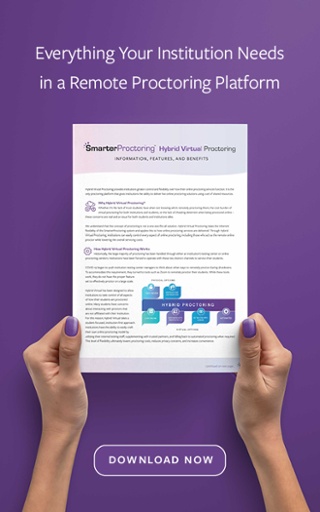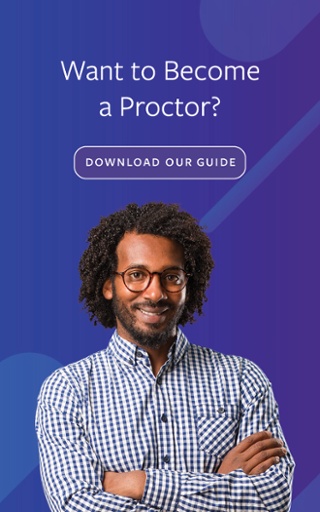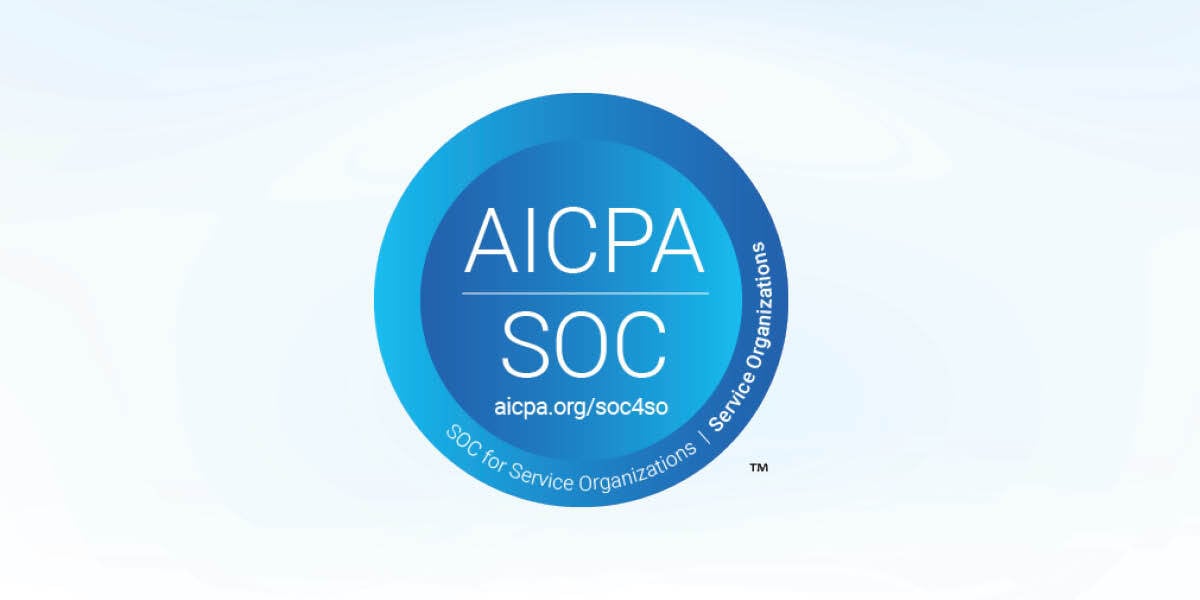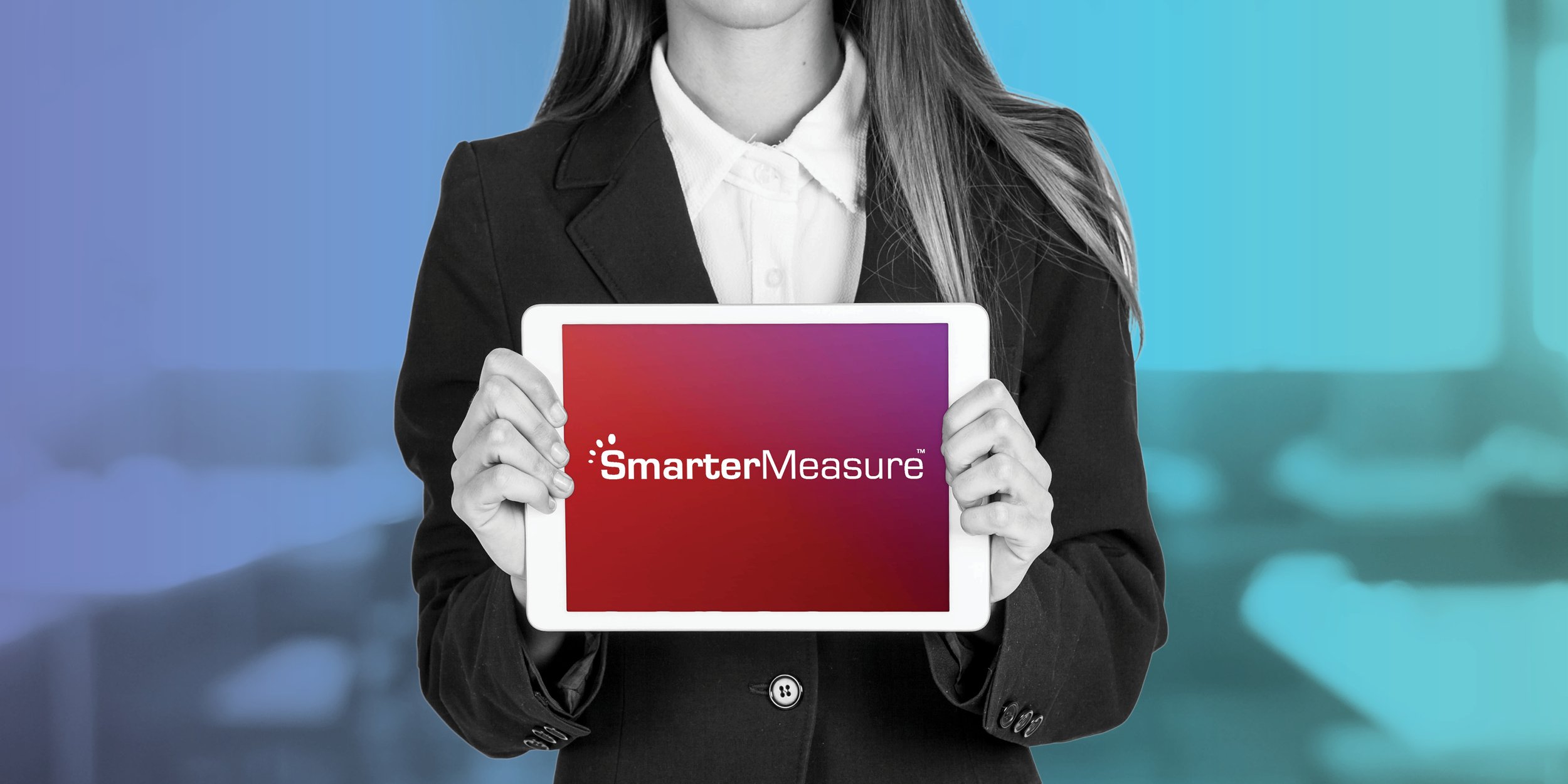
The utilization of virtual proctoring services grew exponentially as schools went more remote. Much has been written about concerns that students have purporting that the software is invasive, discriminatory, and inaccurate. But not as much has been said about the concerns that faculty may have about virtual proctoring.
As a college professor myself who has also used virtual proctoring, I can assure you that faculty do have concerns. In this blog and video overview, I will identify some of these concerns and address how SmarterProctoring is addressing the concerns.
Check out the video below to learn more or scroll down to read the video recap.
Video Overview:
Faculty Concerns with Virtual Proctoring
I have taught online for over twenty years and through my work with SmarterServices, I have interacted with thousands of faculty members at hundreds of institutions. Based on this dialogue, here are the areas of concern that I have heard faculty express.
The primary concern seems to be a matter of time. In the classic model of an instructor administering an exam

in the classroom, when the hour of the exam was over, the only remaining task was grading the exams. All exam supervision occurred while the test was being administered. But now, due to virtual proctoring, in addition to the time it takes to grade the exams, faculty may have to review flags that are indicators of possible academic misconduct for many exams. This can certainly be time-consuming.
The concern with time is related to the concern with the accuracy of the artificial intelligence that is flagging the testing-anomalies. When software flags multiple false positives, it can seem like a waste of time to the faculty member to review the video. An example of this is when a flag indicates that the learner was not present during the exam because their face was not present. But upon review, the student simply lowered their head while picking up their calculator.
Because the process of reviewing virtual exams is so time-consuming, at some institutions this task has been delegated to a vendor by having a proctor review the anomalies after the exam or perform live, virtual proctoring during the exam. But even in this case, many faculty members don’t trust that process and have complained that the live proctors or exam reviewers are not catching all instances of possible cheating.
Another matter that faculty consider an arduous effort is when they have to configure multiple instances of an exam for various proctoring modalities. A common scenario is when one instance of the exam is configured in the LMS for virtual proctoring but for students taking the exam in the local testing center a separate instance of the exam has to be configured.
Some faculty members have also been vocal in the concern over bias that can be present in the artificial intelligence used inautomated virtual proctoring. They share the student’s concern that persons of color may not be being validated and monitored accurately.
In addition to students of color, some faculty are concerned that neurodiverse students may be experiencing undue stress resulting in stage fright as they attempt to be tested virtually.
When an institution uses a single proctoring provider, some faculty members are concerned that all their proctoring must be done the same way. They desire proctoring modality choices that can fluctuate based on the rigor of the exam.
Finally, some faculty find it difficult or impossible to download data about the testing session when they need to archive it offline. They may also be concerned about data security as exam session data is stored somewhere by the proctoring provider.
We Get It. Here's How We Have Responded to these Concerns.
At SmarterServices, we get it. We understand the concerns that faculty may have related to virtual proctoring. We strive to be much more than just a proctoring vendor, but a trusted educational partner who listens to your concerns and shapes our services in response. We are not a company that a group of investors has stood up just to make a quick buck on proctoring. Of all the proctoring companies, we have been around the longest. 2022 is our twentieth anniversary. Over the past two decades, we have served millions of students from over 1,000 educational institutions.
 Here is how we have evolved SmarterProctoring in response to these concerns expressed by faculty. To save faculty members time in the review process, our AI is constantly learning so that flags of possible academic integrity violations are kept to a minimum and are accurately labeled and time-stamped to facilitate a quick review. Faculty members do not have to review the full video, but can quickly jump to time-stamped locations of flagged incidents.
Here is how we have evolved SmarterProctoring in response to these concerns expressed by faculty. To save faculty members time in the review process, our AI is constantly learning so that flags of possible academic integrity violations are kept to a minimum and are accurately labeled and time-stamped to facilitate a quick review. Faculty members do not have to review the full video, but can quickly jump to time-stamped locations of flagged incidents.
To enhance the accuracy of our AI for flagging testing anomalies, our internal process improvement involves frequent audits of testing sessions so that we can further train our AI to distinguish between events that are actual violations and those that are not.
So that faculty can trust our professional reviewers, just as we internally audit the classifications done by our AI, we also internally review sessions monitored by our live, professional proctors.
One of the benefits of SmarterProctoring is that it is not an assessment engine, rather it monitors whatever assessment engine that the faculty member is using. This reduces the administrative effort of having to populate exams in more than one assessment engine. For all proctoring modalities faculty only have to configure SmarterProctoring once for each exam.
To reduce racial bias, we re-trained our AI using a data set of collegiate test-takers across multiple ethnicities. To better serve neurodiverse students who experience high levels of stress during virtual exams, SmarterProctoring is the only proctoring provider that in addition to virtual proctoring provides a nationwide network of collegiate testing centers and proctoring professionals where they may test in a more comfortable environment.
So that faculty can base the nature of the proctoring environment on the rigor of the exam, SmarterProctoring offers the full spectrum of proctoring modality choices including three virtual modalities, three face-to-face modalities, and a hybrid modality that allows someone from the school, such as testing center staff, to serve as the virtual proctor.
Finally, we make it easy for faculty or administrators to download all session data including video of the student and their computing environment as well as all other session data. Our terms of service state that the data belongs to the institution and you are in control over how it is used. We securely store all data in the cloud using Amazon which is the industry standard in data security. All data is encrypted at rest and in transmission.
Start Working Smarter, Not Harder
During the pandemic, many institutions made what some are calling a “panic purchase” related to proctoring. Now, as things are beginning to return to normal, schools are reevaluating their proctoring practices. We would enjoy showing you all of the modalities that SmarterProctoring manages and how we can help make the task of proctoring much better for your faculty members. Contact us today to schedule a demonstration.







